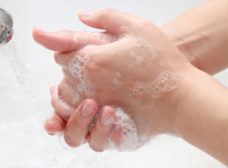Home » public health
Articles Tagged with ''public health''
More women now getting lung cancer than men
Scientists puzzled: smoking rates not the reason
June 1, 2018
How sporting events can damage your hearing
Bring ear plugs, noise canceling headphones with you
May 30, 2018
A FairWarning story
Johnson & Johnson absorbs another big loss in baby powder-mesothelioma case
May 29, 2018
Become a Leader in Safety Culture
Build your knowledge with ISHN, covering key safety, health and industrial hygiene news, products, and trends.
JOIN TODAYCopyright ©2025. All Rights Reserved BNP Media.
Design, CMS, Hosting & Web Development :: ePublishing









